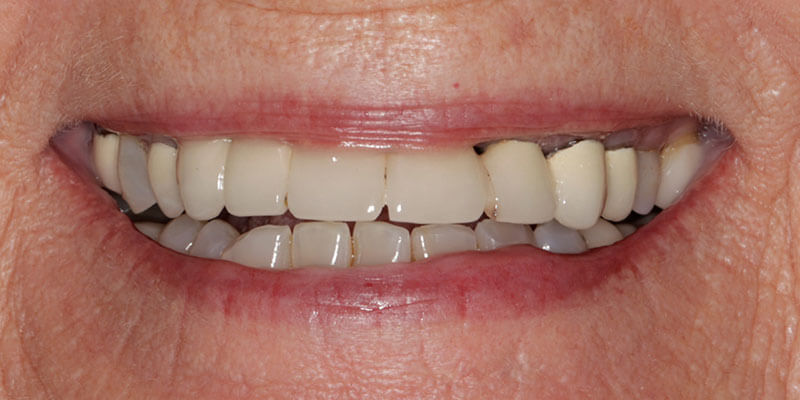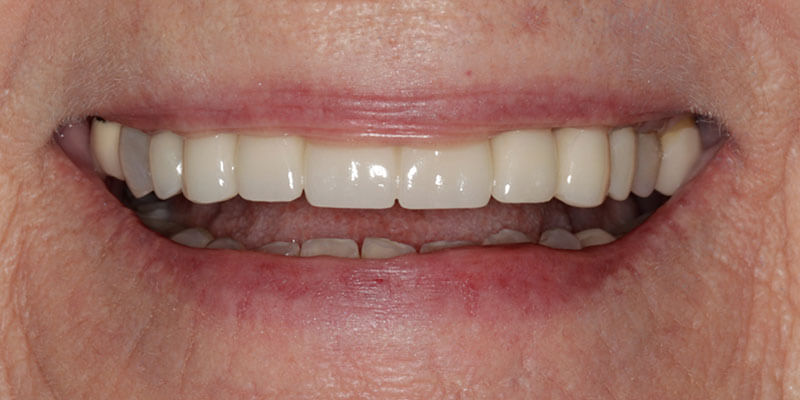Modern Dental Fillings: Durable, Aesthetic, and Painless
At Broadway Dentistry, we know that a cavity can be more than just a small inconvenience. Left untreated, those tiny holes in your teeth can lead to bigger problems down the road. That’s why our approach to dental fillings in Broadway, VA prioritizes your long-term oral health and comfort.
Dr. Jared Kneib and our experienced team utilize the latest techniques and materials to ensure your fillings look and feel as natural as possible. Whether you need a new filling or a replacement for an old one, we’ll walk you through every step of the process, addressing any questions or concerns along the way. With a focus on painless procedures and precision dentistry, you can rest assured your smile is in good hands. Contact us today at (540) 896-8151 to learn more about how we’re transforming the way Broadway views dental fillings.
Don’t Let Cavities Go Untreated
Cavities are more than just minor inconveniences; they can lead to serious dental issues if left untreated. Dental fillings offer a simple and effective solution to halt the progression of decay and restore the integrity of your teeth.
At Broadway Dentistry, our Broadway, VA dentists offer dental fillings to help you say goodbye to the discomfort and potential complications of untreated cavities. To schedule your appointment, contact our dental office today by calling (540) 896-8151
What Are Dental Fillings?
Dental fillings restore and repair teeth that have been affected by decay or damage. When a tooth develops a cavity (dental caries), a small hole caused by decay, a dental filling is used to fill the cavity and prevent further decay or infection. A dental filling can also be used to repair teeth that have been damaged due to trauma or wear.
With dental fillings, our dentist can help patients with:
- Restoring the structural integrity of the tooth, preventing further decay and damage.
- Alleviating tooth sensitivity and pain associated with cavities or damaged teeth.
- Improving the appearance of the tooth, especially when tooth-colored materials are used.
- Preserving the tooth’s function and aesthetics for years to come.
Types of Dental Fillings*
There are various types of dental fillings, some less used than others. Types of dental filling materials may include:
- Composite Fillings: Composite fillings, also known as tooth-colored fillings, are made of a mixture of plastic and glass particles. They’re tooth-colored and blend in with the natural teeth, making them a popular choice for visible areas of the mouth. Composite fillings bond directly to the tooth structure, providing good support. A composite filling is less durable than amalgam fillings and may need to be replaced over time.
- Amalgam Fillings: Also known as silver fillings, these are made of a mixture of metals, including silver, tin, copper, and mercury. They’re durable and have been used for many years. However, their silver color makes them more noticeable, which can be a concern for some patients.
- Ceramic Fillings: These fillings are made of porcelain or ceramic materials. They’re tooth-colored and offer excellent aesthetics. Ceramic fillings are highly resistant to staining and are well-suited for areas of the mouth that require strength and durability.
- Gold Fillings: These are made of gold alloy, which is a mixture of gold and other metals like silver and copper. They’re highly durable and can last for many years. Gold fillings are custom-made in a dental laboratory and are more expensive compared to other types of fillings.
- Glass Ionomer Fillings: These fillings are a mixture of acrylic and glass materials. They release fluoride, which helps to prevent further tooth decay. Glass ionomer fillings are often used in children or for non-load-bearing areas of the teeth.
*Dr. Kneib and the Broadway Dentistry team may not offer all types of fillings.
Benefits of Dental Fillings
Dental fillings offer several benefits for oral health and overall well-being. Some of the key advantages include:
- Decay removal
- Tooth preservation
- Restored function
- Pain relief
- Improved aesthetics
- Durability
- Quick procedure
- Minimal Sensitivity
- Prevents tooth fractures
- Cost-effective
Do You Need Dental Fillings?
To determine your need for dental fillings, our general dentists will evaluate the following:
- Presence of a Cavity: Dental fillings are primarily used to treat cavities. The first thing we’ll look for is the existence of a cavity in a tooth. X-rays and a visual examination help our dentist identify the extent of the decay.
- Tooth Structure: The extent of the damage to the tooth structure is crucial. Dental fillings are typically recommended for minor to moderate decay. If the decay is too extensive, other treatments like dental crowns or root canals may be necessary.
- Patient’s Overall Health: A patient’s overall health and medical history are considered. Certain medical conditions or medications may affect the choice of filling material or the patient’s ability to undergo the procedure.
- Allergies or Sensitivities: Some individuals may have allergies or sensitivities to specific dental materials used in fillings. Dentists must consider these factors when selecting the appropriate filling material.
- Adequate Tooth Structure for Support: There must be enough healthy tooth structure remaining to support the filling. If the tooth is severely compromised, you may not be a suitable candidate for a filling, and alternative treatments may be necessary.
- Patient’s Preferences: Our dentists will also take into account the patient’s preferences, especially if there are cosmetic concerns. Many patients prefer tooth-colored composite fillings for aesthetic reasons, but other options like amalgam or gold fillings are also available.
- Budget and Insurance: Financial considerations play a role in determining candidacy. Patients should discuss the cost of the filling and whether their dental insurance covers the procedure.
- Alternative Treatments: We may also discuss alternative treatments with the patient, especially if a filling isn’t the most suitable option. This could include dental crowns, inlays, onlays, or even tooth extraction in severe cases.
The Dental Filling Process
Our Broadway, VA dentist will start by numbing the area around the tooth to ensure you’re comfortable during the procedure. Next, we’ll use a dental drill or laser to remove the decayed portion of the tooth, leaving a clean and prepared area. Once the decay is removed, Dr. Kneib will carefully shape the cavity to create space for the filling material. The chosen filling material, such as composite resin, amalgam, or porcelain, is then placed into the prepared cavity and shaped to match the natural contours of the tooth. The filling is hardened using a curing light.
After ensuring the proper fit and bite alignment of your newly filled tooth, we’ll make any necessary adjustments. The final step involves polishing the filling to achieve a smooth and natural appearance. The result is a restored tooth that’s both functional and aesthetically pleasing while preventing further decay and maintaining the overall oral health of the patient.
How Much Do Dental Fillings Cost?
On average, a dental filling costs between $50 to $250. However, certain factors will affect the total cost of your filling treatment, such as the type of filling material, the location of the dental practice, and the complexity of your procedure. In most cases, dental insurance covers at least a portion of dental filling expenses.
Frequently Asked Questions
The process of getting a dental filling is usually painless. Before beginning the procedure, the dentist will administer a local anesthetic to numb the area around the tooth. This ensures that you won’t feel any pain during the cavity removal or filling placement. Some patients might experience mild discomfort or sensitivity after the anesthesia wears off, but this is temporary and can be managed with over-the-counter pain relievers.
The lifespan of a dental filling varies depending on factors such as the type of material used, the location of the filling, and the individual’s oral hygiene habits. Amalgam fillings can last for decades, while composite resin fillings might need replacement after around 5 to 10 years. Regular dental check-ups can help monitor the condition of your fillings and detect any signs of wear or damage, ensuring timely maintenance or replacement if necessary.

